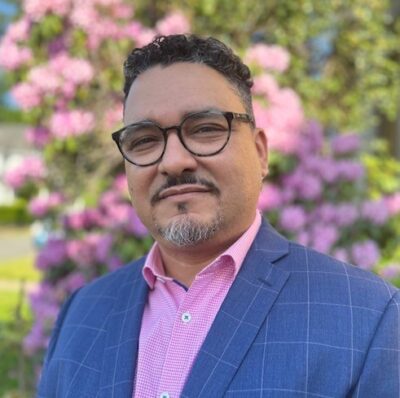 Luis E. Barcelo
Luis E. Barcelo
School Counselor
Pelham Memorial High School (NY)
What drew you to the world of college admission counseling?
My family migrated to the United States from Cuba in 1971. They had grown up in a rural area of the island and were not educated beyond high school. I was fortunate that they placed a high value on education and the role it could have in creating opportunities. I was the first in my immediate family to attend college and was blessed to be accepted into the Higher Education Opportunity Program (HEOP) at Columbia College (NY). A few years after graduating from Columbia, I returned for graduate school and eventually became a HEOP counselor. In that job, I recruited students for our program and continued to see the transformative power of higher education. While recruiting for HEOP in the South Bronx, I met a school counselor who helped me see how I might be able to cast a wider net working in a high school and that brief interaction put me on my trajectory to become a school counselor. I have served in this role since 2003.
What is your favorite part of the job?
There are so many aspects of my job that I love. Working with professionals who share my vision, visiting colleges and seeing what they can offer to families, and annual conferences all stand out as aspects of the job that I thoroughly enjoy. However, my favorite part is working with students. Having a role in helping young people achieve their goals and dreams after navigating their high school career is easily the best aspect of my professional life!
How has NACAC played a role in your career?
When I began as a full-time school counselor in a suburb of New York City, I missed serving the needs of some of the first-generation students who initially drew me into the profession. NYSACAC’s Camp College provided an opportunity very early in my career (I believe it was my first or second year as a counselor) to work with historically marginalized applicants as they took the very big step of spending a weekend on a college campus. I was hooked. Not only did I enjoy working with these amazing young people, I met some incredible professionals working in college, high school, and private counseling settings. Many of them continue to be friends and in some instances have become mentors in my life. I eventually was invited to join the NYSACAC Board of Directors and that led to my role of high school delegate. It was in that capacity that I became more involved in the national organization and had firsthand experience hearing the stories from amazing professionals who were changing lives all over the world.
What do you think is the biggest challenge facing our profession today?
For me, it goes back to fear. So many of my students are fearful that they are not doing enough to get into a “good college.” The families I work with are fearful that overlooking some aspect of what colleges deem important will hurt their children. We as professionals are pushed in different directions and oftentimes caught in the middle of the demands of the admissions cycles and the well-being of our students. Finally, there are segments of society that are afraid that sharing their “piece of the pie” means losing out on perceived guarantees in life. If we can somehow address the fears that underscore these insecurities, instead of magnifying them with senseless factoids that amplify insecurity, I think we could put a lot of our families at ease.
When you aren’t working, what do you like to do?
When I’m not working I love listening to music, audiobooks, and podcasts. I also really enjoy spending quality moments with my loved ones. Whether it be hiking or playing a round of Jackbox, I really value this time with people who are close to me.
If you could be any fictional character, who would it be and why?
I love history and social justice. As a result, I would have to say that Sam Beckett from Quantum Leap is a fictional character that I would want to be. I would love to be able to experience some of the major events of our existence through the eyes of those that lived it and hope that in this role I might be able to affect future generations in a positive way. In some ways, I already get to play that role as a school counselor but wish we were further along as a society in creating more equitable practices.
Published Feb. 5, 2024